Vivian “Jokotade” Adeniyi: You are the only limitation to your potential
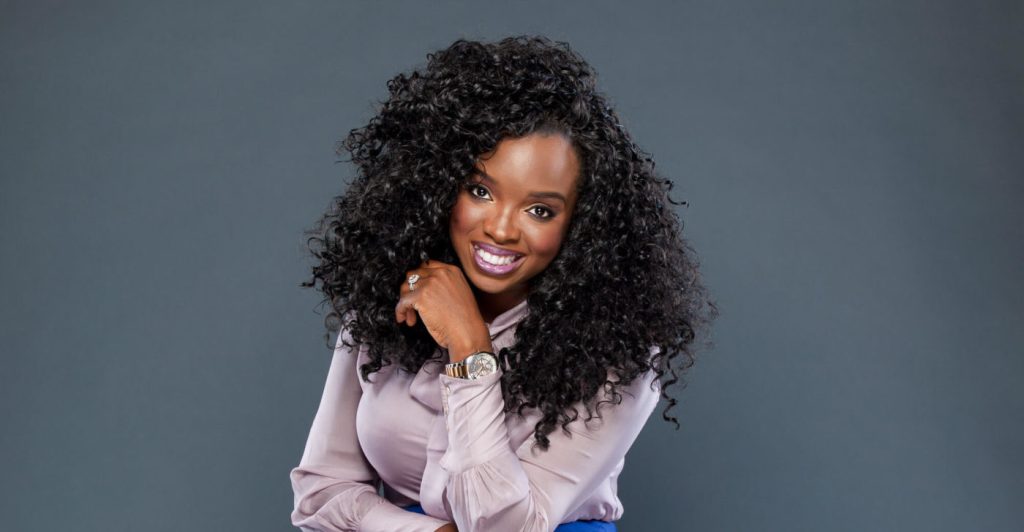
[bctt tweet=”Jokotade: Believe it or not, The Jokotade Network didn’t happen by a plan” username=”SheLeadsAfrica”] Vivian Jokotade Adeniyi, fondly known as “Jokotade”, is a Nigerian-American author, speaker, and thought leader on topics relating to women, business and leadership. She is the founder of The Jokotade Network which hosts a variety of talk shows with audiences in over 100 countries. In addition to running her own network, Jokotade is a wife, mother and an entrepreneur. Her life as a serial entrepreneur began at the age of six ,when she started assisting her mother with her retail goods business in Lagos, Nigeria. Jokotade has since launched a growing list of businesses. These include a leading full-service design and print firm located in Houston, Texas —a business she started with less than $100 over 12 years ago. SLA contributing writer, Uloma Ogba, caught up with this Motherland Mogul to get the inside scoop on how exactly Jokotade does it all, while looking fabulous. What does Jokotade mean and what exactly do you do? My name Jokotade (pronounced JOE-KOH-TAH-DAY), is a Nigerian Yoruba name given to a child whose parents suffered the loss of a child prior to the birth of the named. Its literal meaning is “sit with the crown” or “sit with royalty”. This signifies that this child will not die, but will stay and live with her parents and family. This powerful name was concurrently given by both of my grandmothers at my traditional Nigerian naming ceremony. I use the name “Jokotade” for my speaking and writing platform because it is a very powerful and purposeful name. The name tells a story of my origin, gives you insight into my identity and speaks powerfully to my destiny. I write all of the inspiring details surrounding my birth in my breakout, bestselling book – Fresh Start. Once you discover my full story, I have a sense you’ll simply call me “Jokotade”. [bctt tweet=”Vivian Jokotade Adeniyi: The name Jokotade tells a story of my origin & gives you insight into my identity” username=”SheLeadsAfrica”] Could you give the readers some insight into your background? I was born in Lagos, Nigeria and moved to the United States of America with my parents in 1997. Shortly after I arrived in the US, I got to work beginning my American life as a hair braider. This was my only choice at the time, as I had to wait a full year to begin my university education. I finally gained admission to the University of Houston where I majored in Computer Information Systems (CIS) with special interests in marketing and communications. What drove you to start your first business and continues to drive you to reach for new opportunities? I’ll be honest —my motivation was hunger. I was hungry for the opportunity to live out my potential. I was hungry for the opportunity to start over in the United States; after experiencing a very rough and downward financial season with my parents back home in Nigeria. For several years my dad (who is now a retired surgeon) had successfully operated a private medical practice. But right at the time I was finishing up my secondary school education, his practice suffered grievous losses due to lack of payments. The idea of possibilities, of what can be, of who I can become, has driven me and continues to drive me everyday. It’s a beautiful thing to know that everyday you wake up, you truly can become more than you imagine. I see each waking day as a canvas to paint on. I hope to make each day a beautiful work of art to remember. [bctt tweet=”Jokotade of @jokotadeshow is motivated to reach for new opportunities by hunger ” username=”SheLeadsAfrica”] While in university, you started a business selling clothes and accessories to other students. How did you come up with that idea? What was the process like for you, setting up a business alongside your classes? How were you able to find balance there? Do you know of any university student who couldn’t use some extra cash? If there is one lesson I learned early as a hungry student, it is this —pay attention to the problems you can solve for people. In university, I became the go-to person when it came to shopping or finding affordable resources. The idea of selling accessories to other students was born from a place of paying attention to these kinds of problems and the questions I was often asked. I simply turned these inquiries into a business. I often say that the best business ideas are the ones that solve as many problems as possible for as many people as possible. Juggling my side business wasn’t easy but it was worth it —it helped me pay for a car. This reward motivated me to find a way to “juggle my hustle”. I made time to deliver goods over the weekend and focused on my classes during the week. [bctt tweet=”Jokotade: The idea of possibilities has driven me and continues to drive me everyday.” username=”SheLeadsAfrica”] After university you were involved in a couple of different activities which eventually culminated in what we now see today as The Jokotade Network. Can you take the readers through the journey of how you got to this point? What were some of the major milestones and challenges you faced along the way? Believe it or not, The Jokotade Network didn’t happen by a plan. It happened by growth. Let me explain. I began the Jokotade platform as a fashion and style blog…can you imagine? You see in 2013, I noticed there were several fashion and style bloggers but rarely did any of the bloggers feature the style of clothes I love to wear –classic, sophisticated, refined and polished. Back then, there were hardly any who even featured stylish African clothes in these preferences. So you know what I did? I saw a gap in the market and I rose to fill it. I started blogging, featuring a choice of clothes
Ola Morin-Muhammed: I make it my duty to understand my client’s needs
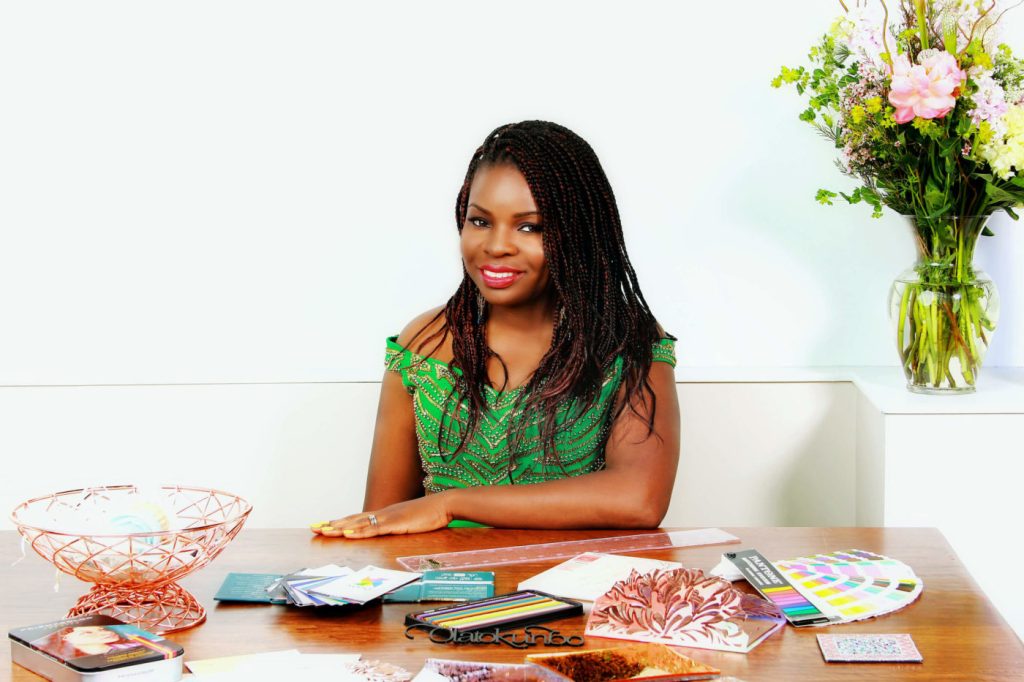
[bctt tweet=” Ola Morin-Muhammed: The ultimate goal is to tell a story and expression of love through design ” username=”SheLeadsAfrica”] Luxury is a lifestyle and Nigerians know how to appreciate luxury. Ola Morin-Muhammed brings luxury to her unique event invitations. Think about it, at any event, the invitation goes out first. They are really the most important mode of communication for a grand day. People are slowly understanding the importance of the first mode of communication for their grand day. The invitation goes out first, and Ola’s invitations are some of the most gorgeous you’ll ever see. Ola Morin-Muhammed started IJORERE in 2008 and has designed invites for A-list celebrities of the sports and entertainment industry. Her background in architecture greatly influences her designs and has given her an unconventional approach. From next year, IJORERE will be designing weddings and events too. What do you think of the invitation design industry in Nigeria? Why the need for luxury in this industry? The invitation design industry in Nigeria is on the rise. People are slowly understanding the importance of the first mode of communication for their grand day. The invitation goes out first, it sets the tone for what to expect. It builds anticipation. The need for stationery in Nigeria, particularly the Nigerian wedding industry has been secondary for some time. And when you have a guest list of at least 1000 to accommodate, a 2-day wedding affair, and the need to make sure there’s surplus of everything, it’s no wonder why the first impression (invitation), doesn’t come first. I do however, see a shift, and Nigerians residing in Nigeria are beginning to understand the necessity of an invitation. Nigerians are known to be overachievers, and when we achieve abundance of wealth, we like to show it off proudly. I think that’s why Nigerians do appreciate luxury. Not because we are conceited or arrogant, but because we like to show off the hard works of our labour. Weddings in Nigeria are flamboyant and all about showing the world; that we have educated overachieving children, and will proudly spend flamboyantly, invite everyone we know and don’t know. This is just so our children know how important they are to us and their wedding is talk of the town. It’s a grand milestone the Nigerian society celebrates. What’s the process that goes on behind your designs? I make it my duty to understand my client’s needs, their personality, and take that knowledge to the drawing board. Sometimes, my client(s) knows exactly what design direction they’d like me to take. Other times, my team and I have to interpret what the client(s) desires are. The ultimate goal is to tell their story and expression of love through design. [bctt tweet=”Ola Morin-Muhammed: Nigerians are known to be overachievers, we like to show wealth off proudly” username=”SheLeadsAfrica”] How does your experience as an architect influence your work with Ijorere? Architecture greatly influence’s my design approach. I’m always designing not just for aesthetics, but functionality and sustainability. I want my designs to be keepsakes and to be used for other purposes outside of just being an invitation. Being able to apply principles of architecture to my design process also influences the way my clients experience their invitation. Now, they realize because of the principle of function, their special day can now and forever be a part of the lives of their loved ones. Some of the invitations became picture frames, boxes to keep special memories or treasures. How do you choose materials/fabrics for your designs? I always choose materials based on the client’s style and most importantly their budget. I also consider their story in the selection process. Identifying what fabrics will share their story and expression of love is a partnership with my clients. At the end, we want their guests to feel like they are really about to experience a uniquely grand day. Has it been difficult (or easy) to find clients to patronise IJORERE? IJORERE has been around since 2008, Over the years, I’ve garnered accolades in the media, including from the likes of Entrepreneur Magazine, INSIDE Weddings, BellaNaija, Munaluchi Bridal, and more. I’ve also been blessed to have designed for A-list celebrities of the sports and entertainment industry. A few I am able to mention are Louis Carr of BET, David Tutera of My Fair Weddings, and the weddings of NFL players; Nicholas Perry, and Michael Daniels. At this point IJORERE is branded, so it’s no longer difficult to receive cool and interesting projects. We let our work do the marketing. [bctt tweet=”Ola Morin-Muhammed: I want my designs to be keepsakes and to be used for other purposes ” username=”SheLeadsAfrica”] Do you usually attend the events you create invitations for? No, not usually, most of my clientèle are out of state or out of the country. Unless, my clients happen to be close friends or family, I don’t typically attend, although a few of my clients have invited me to their wedding or event. I enjoy being a part of it all with the designs we create. We get to be part of the big day and days beyond that with our keepsakes. What’s the last thing on your mind before you go to bed at night? Just 3 things; Prayer, IJORERE, Sleep. Where do you see IJORERE in 2017? Do you have any big plans in store? IJORERE is always evolving and staying abreast of trends. My focus will strictly be on invitation and event design in 2017. Weddings and event design is something new and came by demands, based on continuous requests from my clients. Now, I’m designing not only invitations, but also weddings and events. It’s fun and I find that I’m doing a 360 degree right back to my first love, architecture. If you’d like to share your story with She Leads Africa, let us know more about you and your story here.
Trish Lewis: I’ve always been obsessed with businesses that solve problems
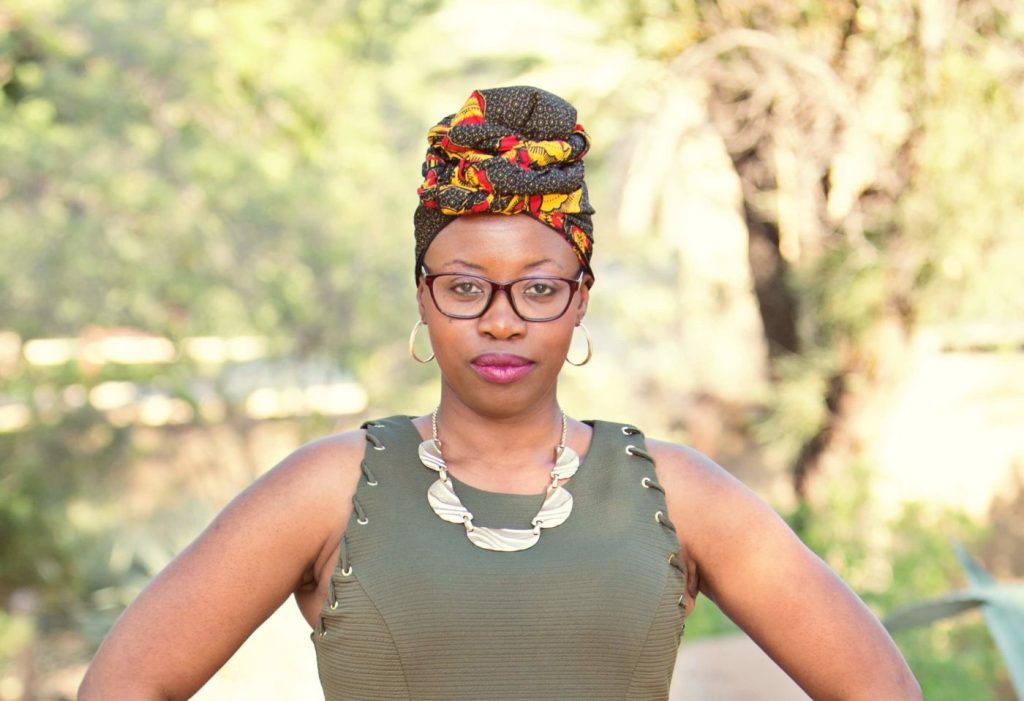
[bctt tweet=”Trish Lewis: Launching Heritage Box has been the ultimate expression of me following my dreams” username=”SheLeadsAfrica”] History doesn’t always stay in the past and for Trish “Manyoni” Lewis, heritage is a means to profit-earning. Trish Lewis is the founder of Heritage Box, a business that delivers snippets from African-American and African history to eager children each month. Her business has been featured in Essence Magazine, ABC News and BlackNews.com to name a few. Through Heritage Box, Trish is helping black parents raise children that are knowledgeable of their rich African heritage. Believe it or not, this thriving business is Trish’s first attempt. Trish is a firm believer of start first, improve later. Keep reading to find out how Trish Lewis has kept her business from failing. What was the idea that sparked Heritage Box? I have always been fascinated, no, actually obsessed with businesses that arise to solve problems. I knew I wanted to start a business that solved a problem I had, that had true impact and was in my field of passion. The idea truly fell on my lap. My then 8 year old daughter made a remark that all they had done for Black History month was colour a picture of Dr Martin Luther King. I was shocked that this was the extent of their black history education. But more importantly, I felt as a parent, it was my responsibility to share this history with her. My husband and I regularly visit my native country Zimbabwe with our children. However, teaching them more about Africa was something we were not being consistent about. Given this problem, or “exposed gap” in our home education, we knew as parents we had to be more intentional and consistent. [bctt tweet=”Trish Lewis: I felt as a parent, it was my responsibility to share black history with my daughter” username=”SheLeadsAfrica”] We examined the reasons we were not consistent and realized that the busyness of school activities, being working parents and the children’s extra-curricular activities were preventing us from devoting the time we knew was necessary to teach our children about their African heritage. We spoke to a number of other parents and realized we were not the only ones with a desire to correct this. The “how” was easy, our kids love getting mail! I had a literal light bulb moment when they received a package in their name and were so excited to open it and let everyone in the family know. I figured, why not package fun lessons and activities on African American history, African history and geography as a gift in the mail? How does one make a business while celebrating heritage? I think at its core, every business is influenced by the owner/founder’s heritage. The extent to which they show it may be different. At some point or another, I believe we all ask the question, “Who am I?” The answer to this question normally involves an analysis of one’s lineage and heritage. I think our business helps a lot of parents who are in the process of getting to the core of who they really are. These parents care about their children having the same foundational knowledge and pride. The key as a business built on celebrating heritage is to make yourself visible to those who share the same vision and to stay grounded in your purpose. [bctt tweet=”Trish Lewis: I think at its core, every business is influenced by the owner/founder’s heritage” username=”SheLeadsAfrica”] When would you say you took a chance and followed through in your dreams? I would say by far launching Heritage Box has been the ultimate expression of me following my dreams. Even at a young age, growing up in Zimbabwe, I always dreamt about owning and running my own business. My academic strengths were in Mathematics and the sciences, so societal pressures had me focus on a career in the sciences. It was more “secure”, and I felt I was “wasting” my talent by pursuing something else. I came to the United States and pursued a degree in biology and subsequently had a great career in the medical field. [bctt tweet=”Trish Lewis: I realized that my career would never offer me the one thing I defined as success” username=”SheLeadsAfrica”] However, after my husband and I started having children, I realized that my career would never offer me the one thing I defined as success; freedom of time. The life I envisioned after the career had set off was one of enjoying quality, present time with my husband and children. The freedom to visit my family in Zimbabwe frequently, and the ability to support or build an orphanage in Zimbabwe. Deep down, I knew that my childhood dream of entrepreneurship was the key to my ideal life becoming a possibility. With this conviction, I began to seriously consider starting a business. How were you able to build your business without any prior experience and escape the failure that affects many start-ups? The key for me was, this was a business I believed in with every core of my being. It was something I saw as having an impact not only to my children, but to families all across the Diaspora and to parents adopting African or African-American children. Through early surveys, I had received a resounding “Yes , we need this” and this carried me through. It fuelled me as I read voraciously on the ins and outs of starting a business. It emboldened me as I started building relationships with other entrepreneurs and learning from them. Above all it kept me going whenever self-doubt would start to kick in. I believe that clarity drives results. If you can get clear on why you would like to build that particular business, your how will naturally be a sustainable one. And naturally is adopting the mentality that failure is not an option. I didn’t even consider failure. I would say you have to commit to fighting for this dream, even to the
Salha Kaitesi: Many of our traditions and stories have been lost
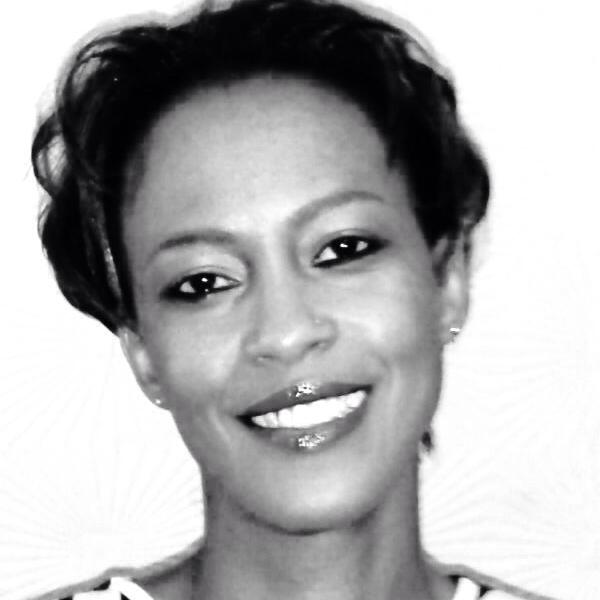
[bctt tweet=”Salha Kaitesi of @ElleAfrique shares her advice on starting a blogzine. It’s not so hard!” username=”SheLeadsAfrica”] Salha Kaitesi is a social entrepreneur currently managing two projects: Beauty of Rwanda, a not-for-profit organisation that economically empowers women and girls in Rwanda; and ElleAfrique, a blogzine dedicated to challenging the perceptions of African girls and women in the world today. The blogzine features writers and wide-ranging topics from across Africa, providing a space for African women to empower and celebrate one another and unite through their stories. How does ElleAfrique stand out in comparison to other lifestyle magazines that target African women? ElleAfrique stands out for several reasons but what truly makes it special is that it’s a platform dedicated to the everyday African woman. Most of our contributors are not “professional” bloggers/writers, they’re just everyday women with a story to tell and wisdom to share. ElleAfrique bloggers are university students, stay at home mums, professionals and everything in between. Our blogzine also covers a range of topics, from the negative effects of the war in Burundi to the latest fashion trends in Cameroon, and span the entire continent because we have gathered women from many different parts of Africa and given them a voice through our platform. The special ingredient to our success is our contributors. What’s the most difficult aspect of running an online website in an age where advertising money is hard to come by and entry barriers are low? Starting a blog has never been easier. What’s important is uniqueness because there are thousands of blogs out there. Attracting new readers with fresh content while maintaining our current readership has been vital to the success of ElleAfrique. It’s a constant balancing act. Constantly monitoring the performance of the blog has been key to keeping on top of things. I have an amazing management group of women that work with me. The blog would not be what it is today without them (and those who share their stories, of course). ElleAfrique is successful because of the entire group. [bctt tweet=”@ElleAfrique is a platform dedicated to telling the stories of the everyday African woman ” username=”SheLeadsAfrica”] Are there stories about African women begging to be told that no one is telling but should? I believe the stories of our mothers and grandmothers are absent in magazines and media in general. However, they are important because these matriarchs, through their life experiences, have shaped today’s African woman. Through modernization, civilisation and the mass exodus of many towards the “Western world”, many of our traditions and stories have been lost. Writing and reading about them will strengthen our connection to our past and bring greater perspective to our present. What’s your advice to anyone starting an online African magazine? Having a unique niche is great, but even if that niche is already being covered elsewhere you can always turn your model into something that is still appealing to future readers. Starting an online magazine isn’t as hard as you might think, but you must be prepared to work really hard. Your small idea can become a household name! When I started ElleAfrique, it was being managed by someone else because I knew nothing about blogging. But I took the time to learn about web design and building a blog. Knowledge of online marketing was also an advantage and an important area to be familiar with. [bctt tweet=”Salha Kaitesi – What’s important is uniqueness because there are thousands of blogs out there” username=”SheLeadsAfrica”] What does the future hold for ElleAfrique? The African woman is multifaceted, multitalented and multicultural and it is because of this that we want all of her represented. I think the best way to achieve this is to have at least one contributor from each country in Africa. We want to attract brands that cater to African women and to be a bridge for businesses to reach their target market. Ultimately, our mission is to change the narrative about the African woman, and who better to do this than the everyday African women, living on the continent or in the diaspora. If you’d like to share your story with She Leads Africa, let us know more about you and your story here.
Yeniva Sisay-Sogbeh: You have a rare gift to share with the world
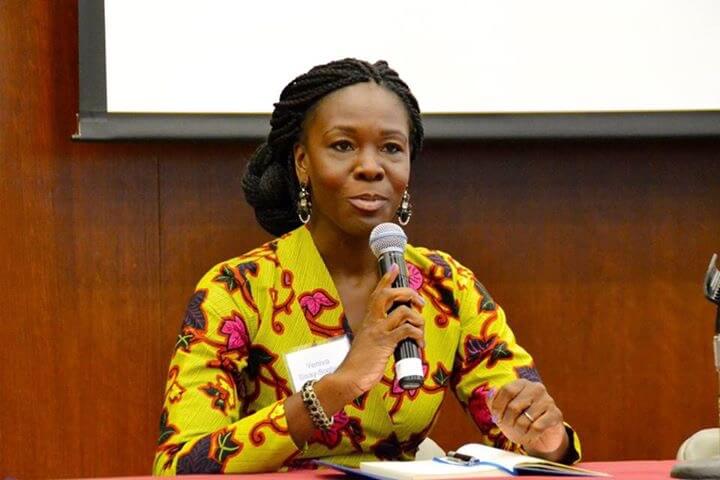
[bctt tweet=”Yeniva Sisay-Sogbeh of @EXCEL_SL is passionate about Sierra Leone with her leadership” username=”SheLeadsAfrica”] Picture a fully rebuilt Sierra Leone where every citizen has fulfilled their potential. Yeniva Sisay-Sogbeh is trying to make that a reality. A consultant and value creator, Yeniva is bringing change to her country through education and youth development. For Yeniva, what she does isn’t just a job. As a consultant, her goal is to create value for her clients and inspire people to expand their horizons. Yeniva also does this with her experience in youth development, she’s spent over 18 years in that sector. You call yourself a value creator, what does this mean? As a consultant, facilitation is at the heart of what I do. My work is to help programs, products, and people expand. I approach my work from a creative manner. What that means is throughout my career I have worked in education, training and development, marketing, facilitation and business development. These are very diverse experiences. I love what I do and I don’t just consider it just a job. In any one of my consultancy assignments, I have my goal to create value for my clients. By way of growth, capacity development, increase in sales, brand recognition, visibility or whatever the assignment may be, I show up to create and deliver value. The twist to being a consultant is you are with each client for a specific amount of time. It can be anywhere from 3 weeks to 3 years, so you have to be focused on the value creation you bring to the table in that set amount of time. [bctt tweet=”@iamyeniva – I teach to inspire people, especially young people to expand their horizons.” username=”SheLeadsAfrica”] Tell us about starting EXCEL Sierra Leone, what were the particular challenges you faced and how did you overcome them? I first began my work in youth development over 18 years ago. As a beneficiary of after school programs, I know the value of the life lessons I learned inside and outside of the classroom. Founded in 2007, EXCEL Sierra Leone (Educational Excellence, Community, Empowerment, Leadership —a community based organization CBO) has endeavoured to reach some of the most promising young people in Sierra Leone to participate in collaborative educational enrichment activities, programs and support services. EXCEL seeks to pioneer the transformation of the education system in Sierra Leone in order to develop a culture of academic excellence. This transformation focuses on empowering the next generation to become leaders, creatives, innovators, thinkers, and change-makers who are not only inspired, but in action to re-define Sierra Leone. We envision a Sierra Leone where everyone has an opportunity to fulfil their potential and achieve educational excellence. Running an organization comes along with many challenges, from staffing to keeping overheads low. I would say our biggest challenge however is finding the funding needed to support our programs and services. Many grants are focused on primary schools, girls child education etc, which are very important causes. However, I find that there are few geared towards secondary school students. We have had to remain creative, finding alternative ways of raising funds inside and outside of Sierra Leone. I have been determined not to allow these challenges to derail or discourage the team. We remain optimistic and seek assistance through partnerships and mentoring from other experienced organizations. What motivates you everyday? Getting up everyday and setting out towards my goal of and doing the work I love and enjoy. Knowing the work I do in the community, private sector or development; impacts my community and my country. That is powerful. I am also motivated by the shift that is happening on the continent and how people in the world see, view and respect Africa. That makes me proud and I am motivated to contribute to the shift. [bctt tweet=”Yeniva Sisay-Sogbeh: We envision a Sierra Leone where everyone can fulfil their potential” username=”SheLeadsAfrica”] Your mantra is “I teach to revive the heartbeat of a generation gone numb”, tell us the story behind this Being an educator is my passion. I teach to awaken the possibility that is in each of us. There is so much happening in the world and we see our youth growing up way before their time due to a variety of circumstances. I teach to inspire people, especially young people to expand their horizons. To revive the heart beat and thirst for change through education and excellence. My greatest wish is to see all of the young people I encounter #EXCEL. You’ve appeared in the documentary, “Am I too African to be American or too American to be African”, can you share how this experience was like? This was a dream come true. Being a first generation African in America, we have a unique experience and story to tell. It seems as though we have heard the Jewish- American, Asian-American, Latino- American story but never our own. It was such an honour to share my perspective and my story as a part of the cast. I think it is imperative that African women tell their own stories and through this film, I have been able to contribute to the discourse around what it means to be a part of both worlds. It is something I wanted to do for a long time so I am grateful for the opportunity. It has been awesome connecting with others just like me all across the world! Why do you think you were awarded the Young Fem-Leader at the Illumessence National Women Awards (INWA)? I was humbled by this great honour. To be recognized amongst some of the most powerful and inspirational women in my country blew me away. I have been a catalyst of many movements which advance opportunities for changing the narrative of the Sierra Leoenan’s especially woman and girls. As the founder of EXCEL Sierra Leone, many young people from the program have gone on to attend some of the best universities all over the world. As
Rose Mutsau: I believed in myself enough to make my own perfume
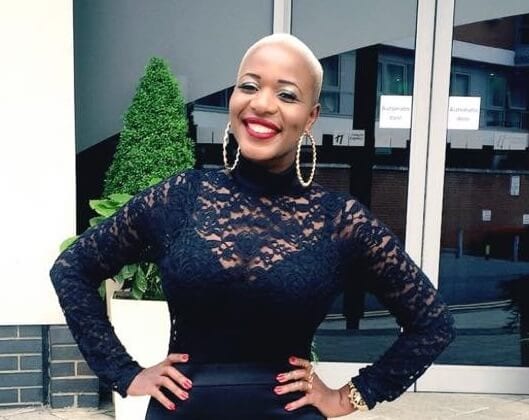
[bctt tweet=”@Summer__Rose – All I ever wanted was to make women feel beautiful” username=”SheLeadsAfrica”] Rose Mutsau is a nurse, a nutritionist and runs an online shop. But perhaps what she’s really known for is her personal brand, Summer Rose. Summer Rose is also part of the name of a fragrance Rose has created. Belle by Summer Rose is a perfume that the streets are saying smells like a million bucks and lasts the whole day. We’re tempted to add perfume-making to our growing list of unusual business ideas. Think about it, how many scents created by African women do you know? Read on to learn how Rose Mutsua found her way to creating her own fragrance line. Please briefly tell us who Summer Rose is. If you don’t mind me asking, is it your real name? My name is Rose Mutsau but most people that know me via social media know me as Summer Rose. Summer Rose is my brand name and my social media handle. I was born in Gutu, Zimbabwe and I grew up in Glenview area 8 Harare. I also lived in Gwanda for a couple of years, then Gweru before I moved to the UK in 2002. You have ventured in one of the most difficult fashion businesses and produced your own fragrance line, what inspired you? My business inspiration is definitely my mother. She was always selling something at any given time, what a woman! God rest her soul. I have always had love for fragrance and over the years I have spent a lot of money on high end perfumes such as Tom Ford, Dior, Jo Malone etc, they are a few of my favourites. When a business opportunity presented itself to me, the first thing that came to my mind was perfume. I knew that it was not going to be easy. At that point, I did not have a clue on how to make perfume let alone convince buyers that it was a worthy product to spend their money on. I believed in myself and that I could turn this dream into reality, so I started working on it straight away. My aim was to produce a fragrance just as good in quality as the high-end fragrances but a lot more affordable so that women from all walks of life could afford it. I think I have managed to accomplish that. How long did it take for you to discover the final scent of Belle? It was a longer process than I anticipated. I had to change the mix three times before I was happy with it. I wanted to release a product that I would be happy to use on myself before I expect other people to love it. All in all it took about six months to approve the final scent. I noticed that your clientele all love Belle and have been gushing over it, how does that make you feel? Are you going to offer a different scent as yet? It makes me so happy, you have no idea! I believed in myself enough to make the perfume and I totally loved the scent. Yet, I was not sure how people would receive it. The feedback has been so amazing. Most of my customers send me pictures of them holding their Belle boxes and it makes me so happy. The name Belle simply means “beautiful woman”. All I ever wanted was to make women feel beautiful and boost their confidence and I have managed to do that through this beautiful fragrance. As for what’s coming next, just watch this space… [bctt tweet=”Rose Mutsau: Business is actually at an all time high during this period” username=”SheLeadsAfrica”] Besides producing your own perfume line what other business are you into? I have an online shop where I sell the perfume and clothing items. I’m working on revamping the website soon. I’m also a rep for a nutritious weight loss programme which has helped me and many women reach their weight loss goals. In addition to that, I am a mental health nurse by profession, a role I’m very passionate about. We are in the festive month and about to close up on 2016, is this a slow time for your business? Business is actually at an all time high during this period. Many people are buying the perfume as Christmas presents for their family and friends. There’s no better time for business than right now. Describe your fashion sense in three words. Also, what’s one 2016 fashion item you will take with you in 2017. My fashion sense is trendy, adventurous and elegant. One fashion item I will take with me into 2017 God willing is none other than my Belle By SummerRose. It goes everywhere with me, my little bottle of heaven. [bctt tweet=”@Summer__Rose – Believe in yourself first before you expect anyone else to believe in you” username=”SheLeadsAfrica”] Any words of encouragement to aspiring business women out there? Dream big and work hard to turn your dreams into reality. Believe in yourself first before you expect anyone else to believe in you. In your journey, there will be many obstacles but never give up. Let that drive you to push even harder until you reach your goals. Don’t be too proud to ask for help, you’ll be amazed how helpful people are if only you ask. Above all pray. Never under estimate the power of prayer. Compliments of the season to you all. Want to see women you know featured on SLA? Tell us what amazing things women are doing in your communities here.
Nonku Jijita: I make anything and everything with my hands and dolls was one of them
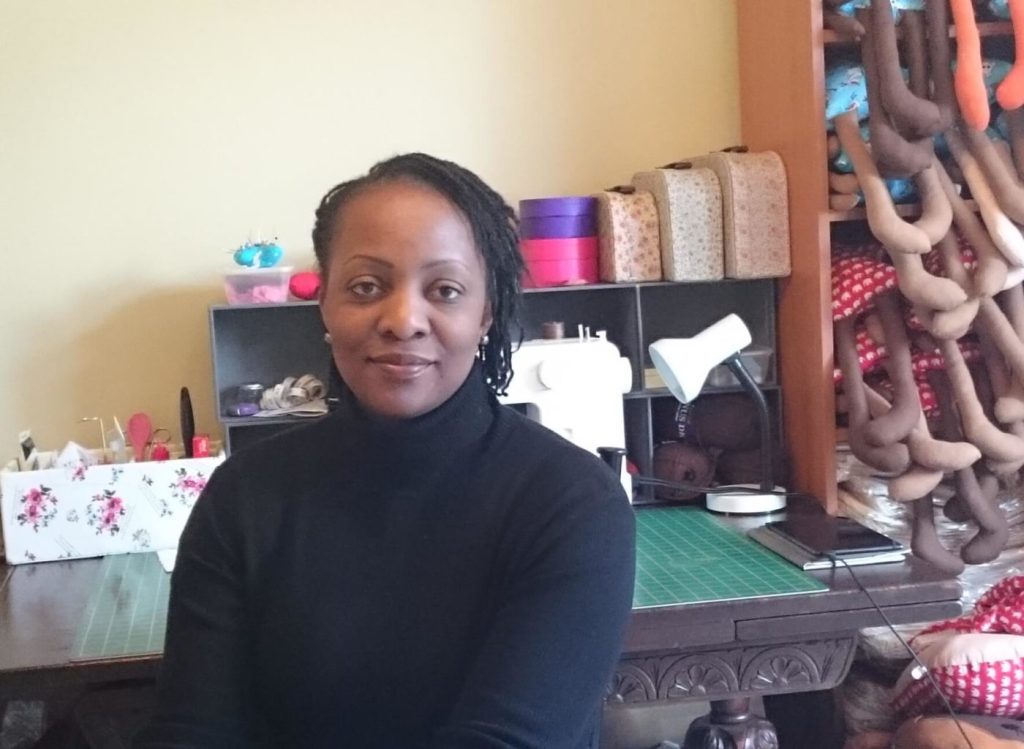
[bctt tweet=”Nonku Jijita: I have always been very crafty since I was little ” username=”SheLeadsAfrica”] Move over Barbie, Love Nonku dolls are here to stay. Each doll in the Love Nonku collection is hand-crafted by Nonku Jijita. Raised in Zimbabwe but now based in the UK, Nonku chose to make dolls in order to share her love for craft with the world. Loving the satisfaction of sewing is one thing but making a business out of it is another. Watching cartoons with her kids lead Nonku to realise that comical cartoon characters are more beloved by children. Nonku Jijita currently plans on establishing a workshop in Zimbabwe that will distribute her dolls across Africa. Why did you decide to make a business selling dolls? I have always been very crafty since I was little. I make anything and everything with my hands and dolls was one of them. I wanted to chose one of my craft activities to share with the world, so I decided to share the dolls. What ideas went to developing this doll that is “not your typical Barbie-style doll”? I wanted to create a design that is simplistic enough to let a child use their own imagination as to what they want that doll to be. I’ve spent years watching cartoons with my kids and noticed that the comical simple cartoon characters are what made my kids laugh and be happy. This is as opposed to characters that where created to look a certain way. Children are a blank canvas when they come into this world. They should be given a chance to use their own imagination without being bombarded with certain imagery they feel obliged to conform to. What’s a typical day like for you? A typical day for me goes like this Take my kids to school, Come back home, make a coffee Get sewing in my home studio I have until 3:30 to collect the kids from school. When they are back home, I tend to them Sometimes, I go back to sewing in the evening. [bctt tweet=”Nonku Jijita: Each Love Nonku doll is made individually to ensure quality” username=”SheLeadsAfrica”] In which countries do you operate and do you have plans to expand? I am currently delivering to UK, USA and Europe. My dream is to expand into Africa, particularly in Zimbabwe, so I am still looking for opportunities to do so. There are some very talented and gifted people in Zimbabwe who do not have access to opportunities. I want to empower and inspire them so they know that there is no limit if they wish to use their gifts and talents. Once my workshop is set up in Zimbabwe, I would like to use it as a base to later connect with toy stores and boutiques throughout Africa. I get a lot of requests for my dolls all over Africa and it would logistically make sense to have a distribution hub in Africa. The dolls would be easily accessible if they are in boutiques across different African countries. Before expanding, I will also need to start connecting and networking. I want to establish relationships with boutique owners, as well as look at marketing strategies that cover the whole of Africa. What processes have you put in place to ensure that your business is effectively run? Attention to detail is key. From the fabric used, to the quality of the thread and paying attention not to waste precious fabric. Each doll is made individually to ensure quality. There is a lot fine cutting as some pieces can be quite small. A steady hand and a good eye is required and definitely lots of light needs to be accessible. The eyes, lips and hair of my dolls are all done by hand and getting the correct measurements is crucial to achieve a uniform look. If you’d like to share your story with She Leads Africa, let us know more about you and your story here.
Building a community of black women in Amsterdam
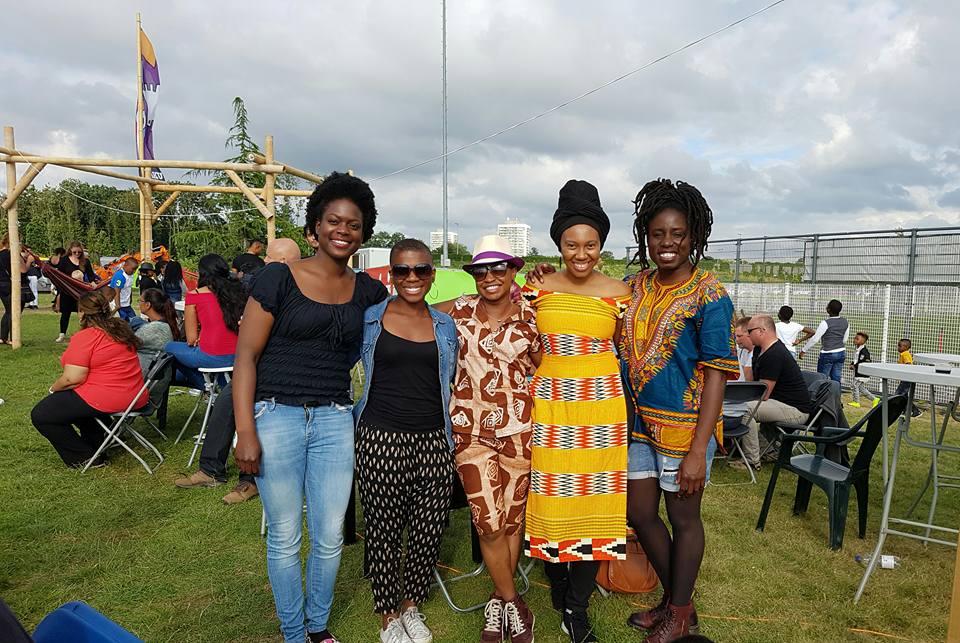
[bctt tweet=”Black women everywhere need to congregate to celebrate our dopeness and support each other” username=”SheLeadsAfrica”] “Black women are made out of brown sugar, cocoa, honey and gold And the strength of ten thousand moons” #Blackgirlmagic is one of the top trending hashtags of 2016. Created by CaShawn Thompson, “Black Girl Magic” illustrates a feeling that some of us have known all along, that black women are universally awesome and it is impossible to count all the ways that we are dope, inspiring and mind-blowing. I am a firm believer in the idea that black women everywhere, at every opportunity, ought to congregate to celebrate our dopeness, to support each other in living out our fullest potentials and to find ways to be there for each other. If we don’t have our backs then who will? The Amsterdam experience When I moved to Amsterdam in 2011, beyond the beauty of the city and the openness and sense of freedom I experienced, one thing that also struck me was how “white” the city was. Now I’m not saying that it was a negative experience from the beginning, but the truth is that most times I was the only black girl in my classes at the University of Amsterdam, in a café in the city centre or at my job…and it got lonely really quickly. When I would encounter another black person, it felt like finding an oasis in the desert and I would try to make the most of the encounter, unsure of when it would happen again. During these times I often wondered where the black people in the city congregated and if there were any spaces in the city where I could just walk into and not feel out place. I eventually came to the conclusion that there weren’t and so I set out to find or co-create a space where black women in Amsterdam could feel safe and secure enough to meet and share stories from their personal and professional lives with like-minded women. [bctt tweet=”The Amsterdam Black Women’s Network was formed to provide community for black women” username=”SheLeadsAfrica”] As the saying goes, “Seek and you shall find” Almost 4 years after I moved to Amsterdam, through luck and determination, one evening I found myself sitting at a table with four amazing, talented and courageous black women from America, Jamaica and Bermuda. We had all been looking for the same thing since we moved to Amsterdam and by the end of our discussion, that evening the foundations of the Amsterdam Black Women’s Network had been formed. In a year, our numbers grew from the 5 founders to a community of over 100 women in and around the greater Amsterdam Area. We recently asked some of our members to share their experiences since they joined the group and these are some of the stories we gathered. It’s been hard to feel part of a community “Co-creating Amsterdam Black Women was a way for me to connect to other like minded women from all over the world, and also help to provide a community where we can share experiences and resources. Our group is becoming about collaboration and support for all of us and I’m here for that. I love that we are now starting to connect and help each other in all our different endeavours.” “What I love most about this group is how it brings together all these dope black women who are doing great things who can serve as a source of friendship, inspiration and support for each other! So excited to see us grow together.” “I have lived here for seven years and have tried everything to meet awesome black people but it’s been hard to feel part of a community. This is something I really need in my life and it comes at a great time. Thanks again for taking initiative. Also it’s so great that the group is so inclusive. It’s important that people feel safe in such a group.” “There’s something special about being able being able to turn up in a foreign land and find a community with whom you know you’ll be understood and accepted, where you’re just allowed to be your unadulterated self.” “I like the multi-faceted events, i.e. book clubs, going to the club, brunch, shopping, visioning, etc. I also like that I get to meet black women from all parts of the diaspora: UK, Netherlands, US, France, Germany, etc.” [bctt tweet=”Our motto is simple: Connect, Belong, Soar – Bringing #blackgirlmagic to Amsterdam” username=”SheLeadsAfrica”] Our motto is simple: Connect, Belong, Soar We are here to create a space where black women can be amongst others who fully share and understand their experience. With the Amsterdam Black Women’s network, we envision a community that is centred on empathy and support that provides a non-judgemental space of communion for those who enter. We want to facilitate growth and support of goals while nurturing inner strength. We aim to be a space of service and advocacy. It’s not easy juggling full-time jobs, families and other commitments while trying to build a group that achieves all of the stated objectives and strives to become a staple in the black community in Amsterdam. But from the sounds of it, we are well on our way and so we will keep putting in the work because #blackgirlmagic. If you are ever in Amsterdam, please look us up on Facebook, Instagram or email us. We would love to welcome you into our little family, show you our Amsterdam and most importantly ensure that you have a place that where you can go that feels like home.
Connecting the African Diaspora through fashion and entrepreneurship
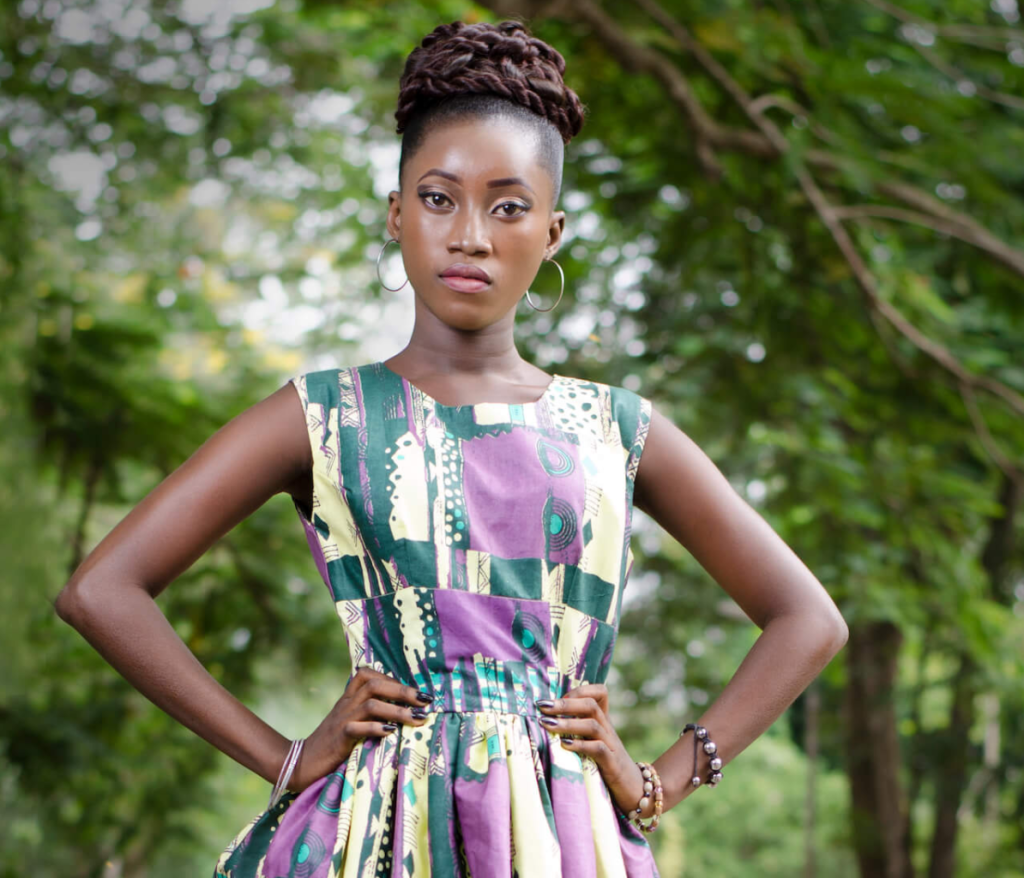
As an undergraduate at University of Pennsylvania, I was blessed with the opportunity to study abroad twice in Ghana. This was the first time that anyone in my family, since we were brought to the USA as slaves, had the chance to return to our ancestral land. While in Ghana, I was exposed to the vibrant and stunning Ankara fabrics and traditional Kente cloth. I instantly fell in love with the fashion there and it’s potential to grow beyond the shores of West Africa and take root and blossom around the globe. I was also intrigued by the prospective economic impact that fashion could contribute to the households of Ghanaian artisans. Then LaBré was born Over the past year I’ve been vigorously working to realize my goals of creating and launching an African inspired fashion line, LaBré. LaBré exists to increase economic growth in Ghana through job creation. It also aims to provide Ghanaian artisans and their products with access and exposure to the international market. LaBré primarily employs women, a population that is often the most disenfranchised. We just recently led a Kickstarter campaign which culminated into a little under $11,000 to employ more Ghanaian artisans with our company. I am proud of the fact that all of our items are handmade in Ghana by Ghanaian artisans. My inspiration comes from my ancestors At the end of the Civil War, most southern African Americans who didn’t migrate to the North made a living through sharecropping which replaced plantation slavery. This is also known as tenant farming. These systems required farmers to plant and grow crops for the owner of the land in exchange for a portion of the crop. Sometimes, it required farmers to use their labor as rent to reside on the owner’s land. Sharecropping and tenant farming has persisted in my family to my grandmother’s generation. As a result of having to be self-reliant, my grandmother grew up knowing how to plant cotton. Through sewing, she also knew how to turn the raw material into cloth. My passion and dedication to create LaBré has culminated into the inter-generational exchange of technical skills. Not only that, it continues to build upon the legacy of self-empowerment, ingenuity, and tenacity. The power of Diasporic connections Learning to deal with the challenges that come with running a business overseas, has made me appreciate the diligence of Ghanaian entrepreneurs. I’ve had to work with electric cuts, language barrier and a lack of efficient telecommunication. Add to that the fact that I’m not physically present. The networks I’ve made have been helpful. Particularly with entrepreneur Peter Paul Akanko, CEO of Kente Masters. Paul helps coordinate and implement LaBré logistical operations on the ground such as shipping, inventory, and photoshoots. In February 2016, the unemployment rate for Black American ages 16-24 was 14.5%. This is similar to the situation in Ghana. Young people aged 24 and under make up 57% of the Ghanaian population. According to the World Bank’s “The Landscape of Jobs in Ghana” report, 48% of Ghanaians between the ages of 15-24 don’t have jobs. My friendship with Peter is a great example of what collaboration throughout the Diaspora and youth entrepreneurship can produce. Telling history through fashion When you wear LaBré you aren’t just wearing beautiful clothes, you are showcasing your resistance.You’re showing that you are critical of where you invest your money, from who and where you buy, and in what you wear. The common narrative is the extraction of wealth and resources from Africa. Through LaBré I am seeking to invest in the Ghanaian economy by providing supply for the rapidly growing demand for African inspired fashion. As an African American, many of us desire to reconnect with our place of origin in meaningful ways. Through LaBré I am telling history through fashion. Our men and women summer collections are both named after Ghanaian liberation leaders, Queen Mother Yaa Asantewaa and King Badu Bonsu II. These are people who we in America grow up with no knowledge of. LaBré is committed to promoting heritage and traditional fabrics through modern design by producing a compelling fashion-forward aesthetic. I plan to build LaBré into a global Diasporic community connecting people through fashion, art, history, and culture. I am currently creating an online platform with Andre Glover of Indsic. The platform will allow Ghanaian artisans mass market and showcase their designs to a global audience and customer base. This is a grassroots effort that will work with local artisans. From the Kente weaving villages of Andanwomase and Bowire to market women in Kejetia and Tamale. I didn’t realize I would be using my International Relations and African Studies degree to create LaBré. If I could go back and give myself advice before starting my company it would be to “trust God and do it now.”
Aina Fadina: I wanted to see a change in mainstream media

In a time where virtually anyone can discovering their production skills using their mobile phones, webseries have become a means to address the lack of diversity in mainstream media. I for Africa is one such series that features and celebrates African-inspired innovators across different industries. Its founder, entrepreneur, fashion model and creative director, Aina Fadina recently chatted with SLA about the series, which is now in its third season. What was the spark that leads you to create I for Africa? Living in NYC, I was surrounded by so many talented and innovative creatives, entrepreneurs, and innovative thinkers inspired by Africa, and I thought they needed to be celebrated. As I traveled around the world, I noticed the same examples. I realized there was something here. I felt that it was important to change the narrative of what mainstream media was reporting about Africans and immigrants. It’s important to change the narrative of our stories and the people telling African stories around the world. With so many web series, how do you stand out? The engagement with guests on the show is in a very relaxed format that draws the viewer in to the conversation. It is a conversation between two friends talking about what inspires them and motivates them to be pursuing their ventures. Additionally, the program highlights the transatlantic journey of people from different ports inspired by Africa. What defines someone inspired by the African continent? How do you brainstorm episodes and people to interview? Have you faced any difficulty finding personalities to talk to for the series? Someone inspired by Africa is in the manner in which they choose to celebrate the continent through their creative ideas. It’s the connection of the heart and soul to the continent. With coming up with episodes, I reflect on who I am inspired by personally and professionally. My finger is always on the pulse of what is happening, so it makes it quite easy to think about who to interview. Finding someone to interview is actually quite easy for me. I have a lot of friends who have recommended other creative friends. People have been very kind to say yes. There are so many dope people doing phenomenal things, so brainstorming is quite easy. An interview depends where I am, if I am able to connect to the people, and if they have a project coming out. Overall, coming up with a list of people isn’t challenging at all because there are so many creatives inspired by Africa. Did you have to learn any new skills to host a web series? I have experience modelling international. For modelling, I took commercial acting classes, which allowed me to transition to hosting. I have developed an acute understanding camera presence, engaging with people in the same space and how to engage with the camera. What has been the one I for Africa episode that stands out to you? They all stand out for me, every person I have interviewed has inspired me in so many ways. If I had to choose, perhaps it’ll be the first ones I shot in South by South West. Once we were done, I realized this is what I wanted to do. It also showed me that the path of content production wasn’t an easy one, but I wanted it. I wanted to see a change in mainstream media, rather than complain about it, I needed to create a solution. Taking that first step to create something is what stands out to me. Starting something isn’t hard; the challenge is how you chose to continue. As someone who travels a lot for work, which African city holds the most cheerful memories for you? Tough one…I have loved every African city for various reasons. Lagos fills the core of my existence. Cape Town challenged me the most from a psychological perspective. It was there that I met two friends —who became brothers— who welcomed me with open arms. Accra speaks to my soul. Cotonou brings beautiful childhood memories. If you’d like to share your story with She Leads Africa, let us know more about you and your story here.
